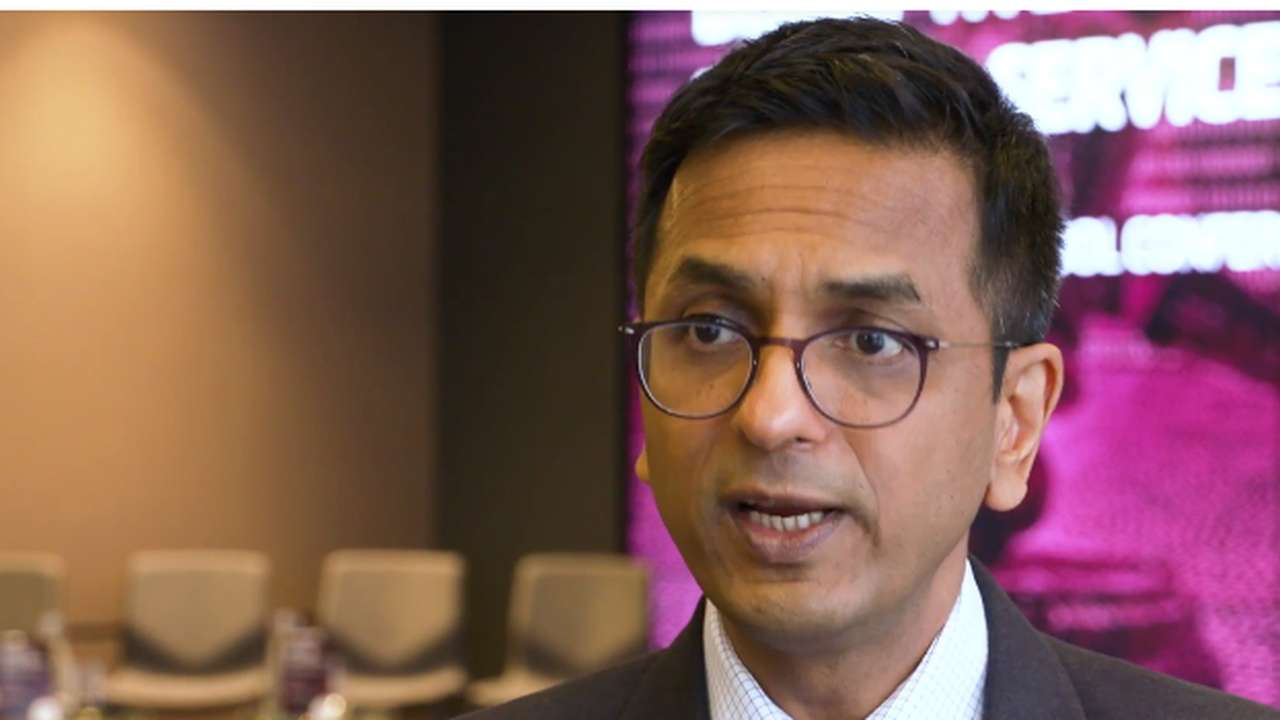
CJI Chandrachud: Judges must interpret Constitution with changing times while preserving its essence

Chief Justice of India D Y Chandrachud on Saturday stated that the skill of a judge lies in interpreting the Constitution in a way that adapts to the changing times while preserving its fundamental principles.
The basic structure of the Indian Constitution guides and gives certain direction to its interpreters and implementers when the path ahead is convoluted, he said.
He also observed that India’s legal landscape has undergone a significant change in the recent decades in favour of removing “strangulating regulations, augmenting consumer welfare and supporting commercial transactions”.
Also Read: ‘Constitution bigger than Parliament’: Legal experts slam Dhankar’s remarks on judiciary
The CJI was speaking at the Nani A Palkhivala Memorial Lecture here.
“The identity of the Indian Constitution has evolved through the interaction of Indian citizens with the Constitution, and has been accompanied by judicial interpretation. The craftsmanship of a judge lies in interpreting the text of the Constitution with the changing times while keeping its soul intact,” he said.
“The basic structure of our Constitution, like the north star, guides and gives certain direction to the interpreters and implementers of the Constitution when the path ahead is convoluted. The basic structure or the philosophy of our Constitution is premised on the supremacy of the Constitution, rule of law, separation of powers, judicial review, secularism, federalism, freedom and the dignity of the individual and the unity and integrity of the nation,” he added.
Also Read: TN govt well within its rights to oppose Governor’s actions: Constitutional expert
The emerging world economy has erased national boundaries, and companies no longer stop at the border, the CJI said.
“In recent decades, India’s legal landscape has also undergone a significant change in favour of removing strangulating regulations, augmenting consumer welfare and supporting commercial transactions. Legislation, such as the Competition law and the Insolvency and Bankruptcy Code, have been enacted to promote fair market competition. Similarly, the Goods and Services Tax (GST) has sought to streamline indirect taxation on the supply of goods and services in India,” he said.
“If you look at the Constitution, it does not favour unbounded economic liberalism. Rather, our Constitution seeks to find the right balance,” the CJI added.
Also Read: India’s Constitution secular yes, but courts pandering to Hindu majority demands
CJI Chandrachud said the Constitution allows the state to change and evolve its legal and economic policies to meet societal demands.
“When individuals have the opportunity to exercise their liberties and to be fairly rewarded for their efforts, then economic justice becomes one of the many inter-related dimensions of life. Ultimately, we share common faiths and destinies to the point that development of each individual fosters social justice in the entire world,” he said.
“We have come a long way from the time when getting a phone required you had to wait for a decade, and buying your car even longer at times. We have come a long way from the time of the control of capital issues. From time to time, we require people like Nani (Palkhivala) to hold candles in their steady hands to light the world around us. Nani told us that our Constitution has a certain identity which cannot be altered,” he added.
Also Read: Scholars debunk claims that Vedas are pillars of Indian Constitution
The CJI said the doctrine of basic structure has shown that it might be beneficial for a judge to look at how other jurisdictions have dealt with similar problems for them.
“Nonetheless, the larger picture of legal culture and local dimensions of law, which are dictated by the local context, should never be obfuscated. Law is always grounded in social realities,” the CJI said.
Talking about Palkhivala and his several prominent cases, the CJI said he was at the forefront of preserving the very identity and cardinal principle embedded in the Constitution.
(With agency inputs)

